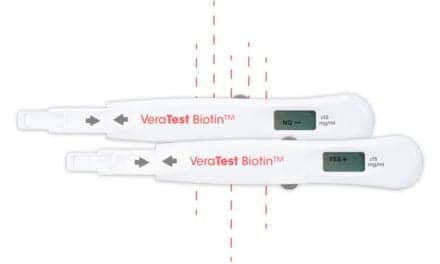World Cancer Day was marked this year on Sunday, February 4, raising awareness of the millions of people worldwide facing unequal access to cancer detection, treatment, and care services. With cancer leaders, health professionals, and supporters across the world pushing for urgent action to reduce the rate of premature cancer deaths globally, events of the day called for diagnostic and treatment access to be prioritized.
According to the American Society for Clinical Pathology (ASCP), the global target of a 25% reduction in premature deaths from cancer and noncommunicable diseases (NCDs) by 2025 is possible. To deliver on this global commitment, however, ASCP says the current inequities in risk-factor exposure, and in access to screening, early detection, and timely and appropriate treatment and care, must be addressed.
“Set in 2011, the World Health Organization’s target to cut premature NCD deaths by 25% within 14 years is coming toward its halfway mark,” says Sanchia Aranda, president of the Union for International Cancer Control (UICC) and chief executive of Cancer Council Australia. “We can meet the target, but more action than ever will be required. Inequality in access to prevention, diagnosis, treatment, and care makes reducing premature deaths from cancer difficult. If we are committed to achieving this goal, we must act quickly and decisively to make access to cancer services more equal all around the world.”
“ASCP is pleased to join with the UICC on World Cancer Day to raise awareness of the importance of improving access to quality cancer diagnostics and treatment as part of the UICC’s ‘We can. I can.’ campaign,” says Dan A. Milner Jr, MD, MSc, FASCP, chief medical officer of ASCP.
Led by UICC, World Cancer Day rallies the world’s voices against what the World Health Organization recently recognized for the first time as the leading cause of global morbidity.1 Today, there are an estimated 8.8 million deaths from cancer every year.2 However, low- to middle-income countries are bearing the brunt, as approximately 70% of deaths occur in developing countries, which are the most ill-equipped to cope with the cancer burden.2
Inequities are also acutely experienced in high- to middle-income countries, particularly within certain populations, including the indigenous, immigrant, refugee, rural, and lower-socioeconomic populations.
“In the last year of the ‘We can. I can.’ campaign for World Cancer Day, we hope to inspire real action from governments and civil society in addressing the inequities in cancer diagnosis, treatment and care, which unfortunately largely affects the most vulnerable populations in every country,” says Aranda.
For example, approximately 650,000 people in Africa develop cancer annually, and about 510,000 cancer deaths occur annually due to limited treatment and resources. In sub-Saharan Africa, there is only one pathologist per approximately 1 million people. In response, through its Partners for Cancer Diagnosis and Treatment in Africa initiative, ASCP is establishing telepathology laboratories in multiple resource-limited areas, including Haiti, Rwanda, Tanzania, and Uganda, to provide patients with access to rapid cancer diagnostics and appropriate care and treatment.
Meanwhile, ASCP is also working with Novartis and the American Cancer Society to devise a common approach to improving access to cancer treatment in several countries in sub-Saharan Africa. ASCP is building healthcare capacity for immunohistochemistry analysis in seven hospital laboratories in Ethiopia, Rwanda, Tanzania, and Uganda. The American Cancer Society is supporting the training of healthcare professionals in Ethiopia, Tanzania, and Uganda to ensure quality processes in the transportation of biopsy samples and in the administration of chemotherapy. Novartis will provide funding to support the technical work. This initiative will serve as a pilot for the future roll-out of similar activities in other countries.
As an urgent response to the global equity gap and the critical need for an in-country response, UICC recently officially launched Treatment for All, marking the second new initiative by UICC in as many years to mobilize national action to improve access to diagnosis and treatment for cancer. ASCP supports the Treatment for All initiative as a central pillar of the ASCP partners project.
“The tsunami of cancer cases anticipated in the coming decades requires a persuasive and robust response at all levels, global and national,” says Cary Adams, MBA, chief executive of UICC. “Treatment for All, in tandem with its sister initiative, C/Can 2025: City Cancer Challenge, will work to accelerate progress by translating global commitments to evidence-, safety- and quality-based national actions.” ASCP is the lead medical laboratory organization for the C/Can 2025: City Cancer Challenge.
REFERENCES
- Cancer prevention and control in the context of an integrated approach [World Health Assembly, agenda item 15.6]. Geneva, Switzerland: World Health Organization, 2017. Available at: http://apps.who.int/medicinedocs/documents/s23233en/s23233en.pdf. Accessed February 5, 2018.
- Cancer Fact Sheet [online]. Geneva, Switzerland: World Health Organization, 2017. Available at: www.who.int/mediacentre/factsheets/fs297/en/. Accessed February 5, 2018.








